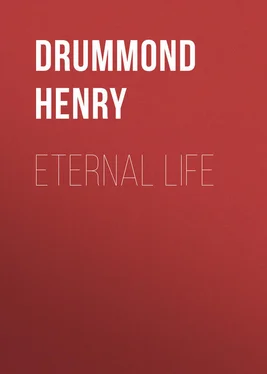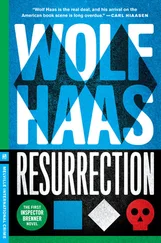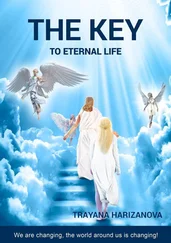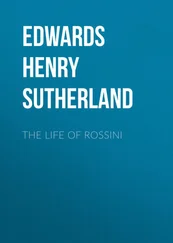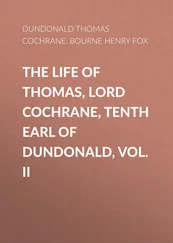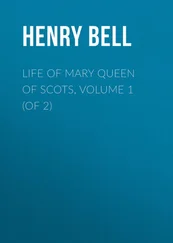Henry Drummond - Eternal Life
Здесь есть возможность читать онлайн «Henry Drummond - Eternal Life» — ознакомительный отрывок электронной книги совершенно бесплатно, а после прочтения отрывка купить полную версию. В некоторых случаях можно слушать аудио, скачать через торрент в формате fb2 и присутствует краткое содержание. Жанр: foreign_antique, foreign_prose, на английском языке. Описание произведения, (предисловие) а так же отзывы посетителей доступны на портале библиотеки ЛибКат.
- Название:Eternal Life
- Автор:
- Жанр:
- Год:неизвестен
- ISBN:нет данных
- Рейтинг книги:5 / 5. Голосов: 1
-
Избранное:Добавить в избранное
- Отзывы:
-
Ваша оценка:
- 100
- 1
- 2
- 3
- 4
- 5
Eternal Life: краткое содержание, описание и аннотация
Предлагаем к чтению аннотацию, описание, краткое содержание или предисловие (зависит от того, что написал сам автор книги «Eternal Life»). Если вы не нашли необходимую информацию о книге — напишите в комментариях, мы постараемся отыскать её.
Eternal Life — читать онлайн ознакомительный отрывок
Ниже представлен текст книги, разбитый по страницам. Система сохранения места последней прочитанной страницы, позволяет с удобством читать онлайн бесплатно книгу «Eternal Life», без необходимости каждый раз заново искать на чём Вы остановились. Поставьте закладку, и сможете в любой момент перейти на страницу, на которой закончили чтение.
Интервал:
Закладка:
To state and illustrate the proposition conversely may make the point still further clear. The less highly organized an animal is, the less will be its chance of remaining in lengthened correspondence with its Environment. At some time or other in its career circumstances are sure to occur to which the comparatively immobile organism finds itself structurally unable to respond. Thus a Medusa tossed ashore by a wave, finds itself so out of correspondence with its new surroundings that its life must pay the forfeit. Had it been able by internal change to adapt itself to external change – to correspond sufficiently with the new environment, as for example to crawl, as an eel would have done, back into that environment with which it had completer correspondence – its life might have been spared. But had this happened it would continue to live henceforth only so long as it could continue in correspondence with all the circumstances in which it might find itself. Even if, however, it became complex enough to resist the ordinary and direct dangers of its environment, it might still be out of correspondence with others. A naturalist for instance, might take advantage of its want of correspondence with particular sights and sounds to capture it for his cabinet, or the sudden dropping of a yacht's anchor or the turn of a screw might cause its untimely death.
Again, in the case of a bird in virtue of its more complex organization, there is command over a much larger area of environment. It can take precautions such as the Medusa could not; it has increased facilities for securing food; its adjustments all round are more complex; and therefore it ought to be able to maintain its Life for a longer period. There is still a large area, however, over which it has no control. Its power of internal change is not complete enough to afford it perfect correspondence with all external changes, and its tenure of Life is to that extent insecure. Its correspondence, moreover, is limited even with regard to those external conditions with which it has been partially established. Thus a bird in ordinary circumstances has no difficulty in adapting itself to changes of temperature, but if these are varied beyond the point at which its capacity of adjustment begins to fail – for example, during an extreme winter – the organism being unable to meet the condition must perish. The human organism, on the other hand, can respond to this external condition, as well as to countless other vicissitudes under which lower forms would inevitably succumb. Man's adjustments are to the largest known area of Environment, and hence he ought to be able furthest to prolong his Life.
It becomes evident, then, that as we ascend in the scale of Life we rise also in the scale of longevity. The lowest organisms are, as a rule, shortlived, and the rate of mortality diminishes more or less regularly as we ascend in the animal scale. So extraordinary indeed is the mortality among lowly-organized forms that in most cases a compensation is actually provided, nature endowing them with a marvellously increased fertility in order to guard against absolute extinction. Almost all lower forms are furnished not only with great reproductive powers, but with different methods of propagation, by which, in various circumstances, and in an incredibly short time, the species can be indefinitely multiplied. Ehrenberg found that by the repeated subdivisions of a single Paramecium , no fewer than 268,000,000 similar organisms might be produced in one month. This power steadily decreases as we rise higher in the scale, until forms are reached in which one, two, or at most three, come into being at a birth. It decreases, however because it is no longer needed. These forms have a much longer lease of Life. And it may be taken as a rule, although it has exceptions, that complexity in animal organisms is always associated with longevity.
It may be objected that these illustrations are taken merely from morbid conditions. But whether the Life be cut short by accident or by disease the principle is the same. All dissolution is brought about practically in the same way. A certain condition in the Environment fails to be met by a corresponding condition in the organism, and this is death. And conversely the more an organism in virtue of its complexity can adapt itself to all the parts of its Environment, the longer it will live. "It is manifest a priori ," says Mr. Herbert Spencer, "that since changes in the physical state of the environment, as also those mechanical actions and those variations of available food which occur in it, are liable to stop the processes going on in the organism; and since the adaptive changes in the organism have the effects of directly or indirectly counterbalancing these changes in the environment, it follows that the life of the organism will be short or long, low or high, according to the extent to which changes in the environment are met by corresponding changes in the organism. Allowing a margin for perturbations, the life will continue only while the correspondence continues; the completeness of the life will be proportionate to the completeness of the correspondence; and the life will be perfect only when the correspondence is perfect." 1 1 "Principles of Biology," p. 82.
We are now all but in sight of our scientific definition of Eternal Life. The desideratum is an organism with a correspondence of a very exceptional kind. It must lie beyond the reach of those "mechanical actions" and those "variations of available food," which are "liable to stop the processes going on in the organism." Before we reach an Eternal Life we must pass beyond that point at which all ordinary correspondences inevitably cease. We must find an organism so high and complex, that at some point in its development it shall have added a correspondence which organic death is powerless to arrest. We must, in short, pass beyond that finite region where the correspondences depend on evanescent and material media, and enter a further region where the Environment corresponded with is itself Eternal. Such an Environment exists. The Environment of the Spiritual world is outside the influence of these "mechanical actions," which sooner or later interrupt the processes going on in all finite organisms. If then we can find an organism which has established a correspondence with the spiritual world, that correspondence will possess the elements of eternity – provided only one other condition be fulfilled.
That condition is that the Environment be perfect. If it is not perfect, if it is not the highest, if it is endowed with the finite quality of change, there can be no guarantee that the Life of its correspondents will be eternal. Some change might occur in it which the correspondents had no adaptive changes to meet, and Life would cease. But grant a spiritual organism in perfect correspondence with a perfect spiritual Environment, and the conditions necessary to Eternal Life are satisfied.
Конец ознакомительного фрагмента.
Текст предоставлен ООО «ЛитРес».
Прочитайте эту книгу целиком, купив полную легальную версию на ЛитРес.
Безопасно оплатить книгу можно банковской картой Visa, MasterCard, Maestro, со счета мобильного телефона, с платежного терминала, в салоне МТС или Связной, через PayPal, WebMoney, Яндекс.Деньги, QIWI Кошелек, бонусными картами или другим удобным Вам способом.
1
Интервал:
Закладка:
Похожие книги на «Eternal Life»
Представляем Вашему вниманию похожие книги на «Eternal Life» списком для выбора. Мы отобрали схожую по названию и смыслу литературу в надежде предоставить читателям больше вариантов отыскать новые, интересные, ещё непрочитанные произведения.
Обсуждение, отзывы о книге «Eternal Life» и просто собственные мнения читателей. Оставьте ваши комментарии, напишите, что Вы думаете о произведении, его смысле или главных героях. Укажите что конкретно понравилось, а что нет, и почему Вы так считаете.
